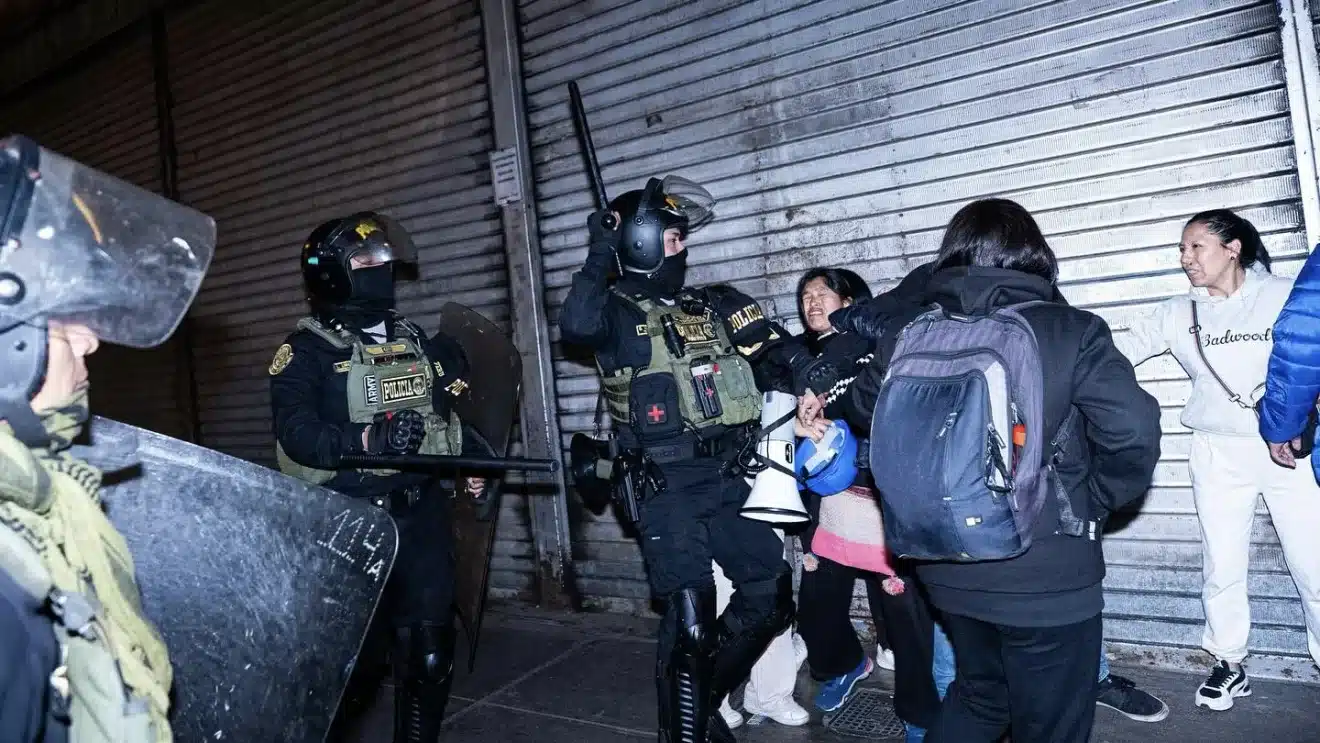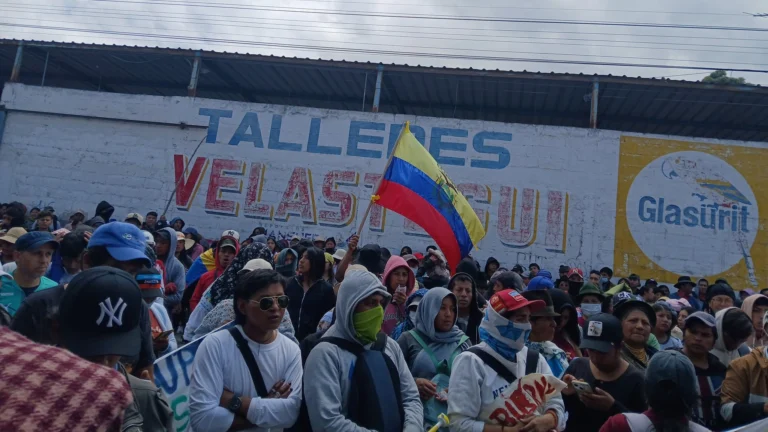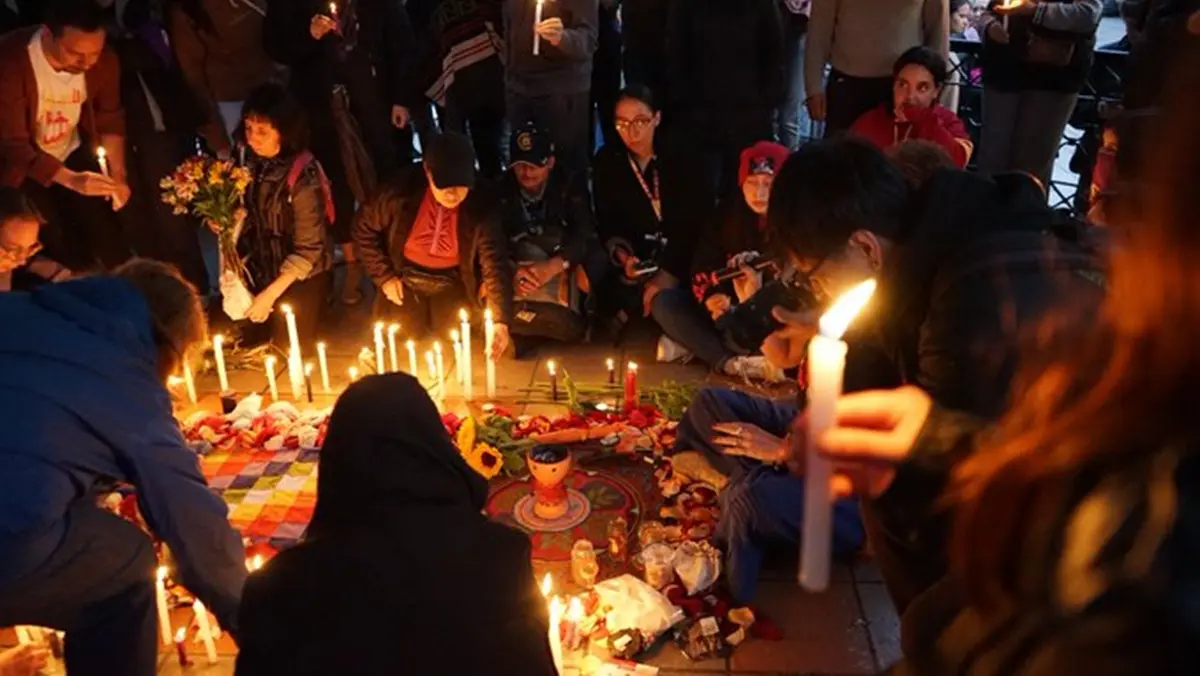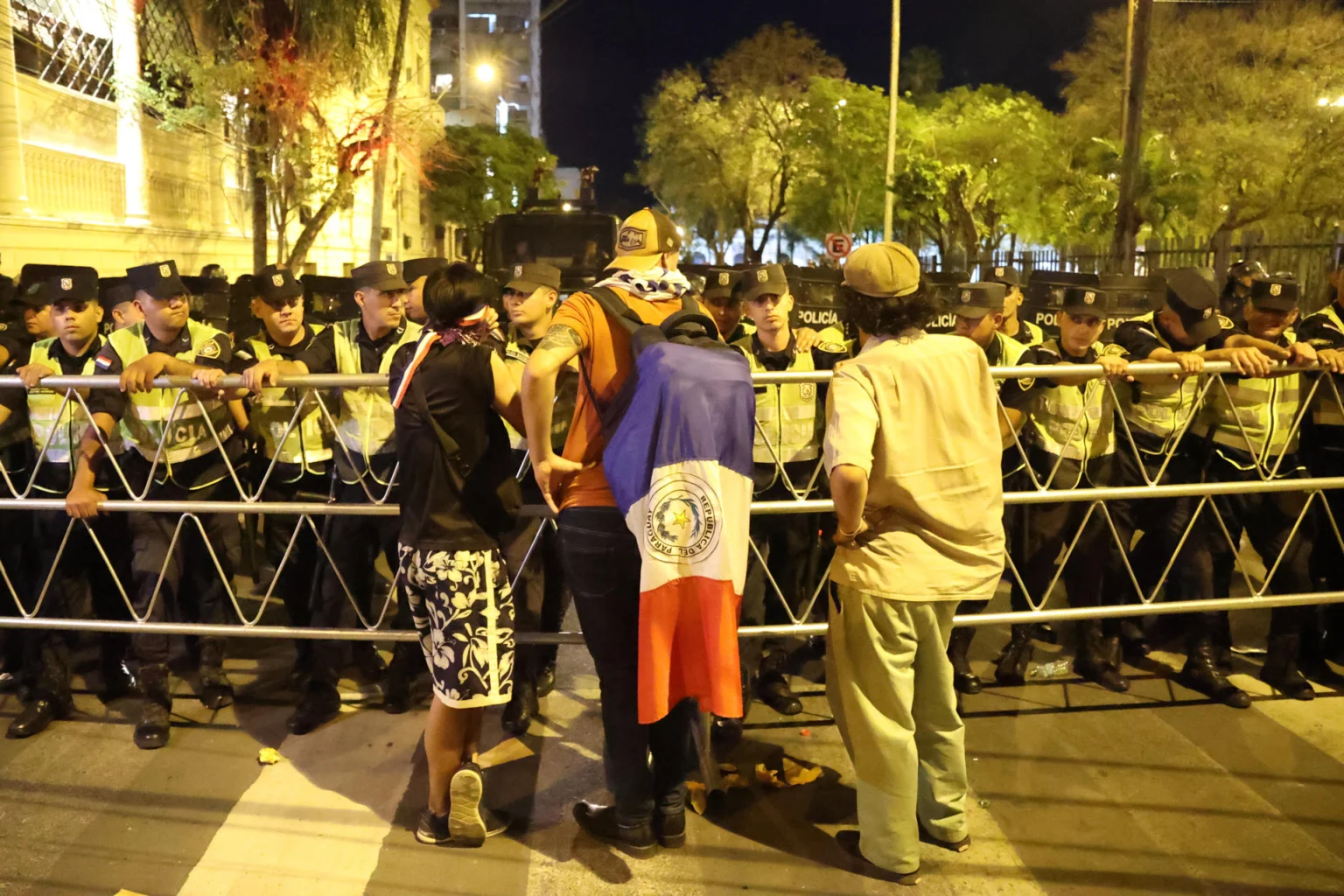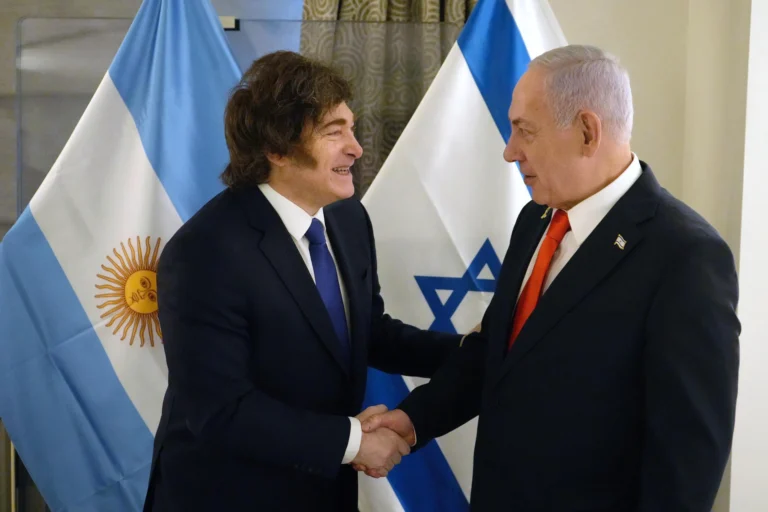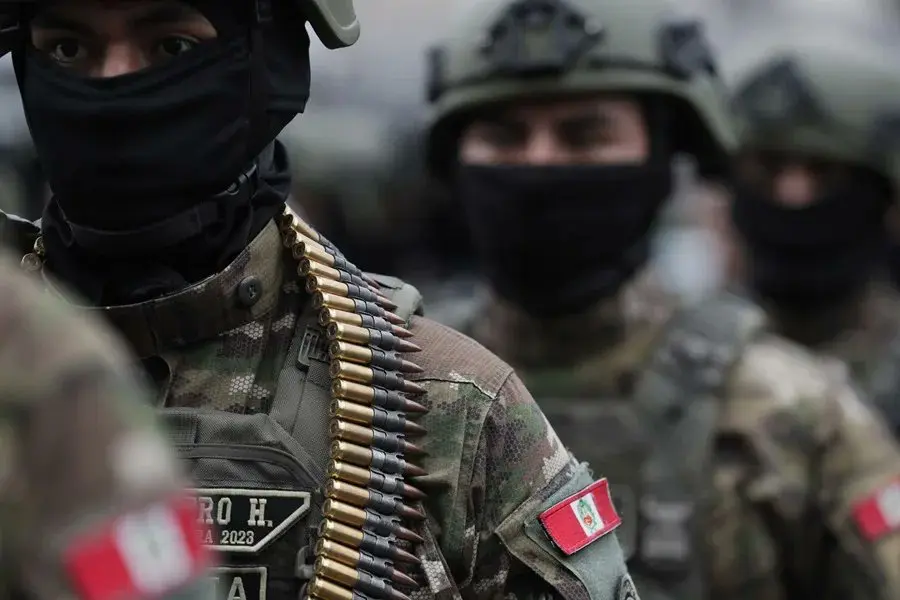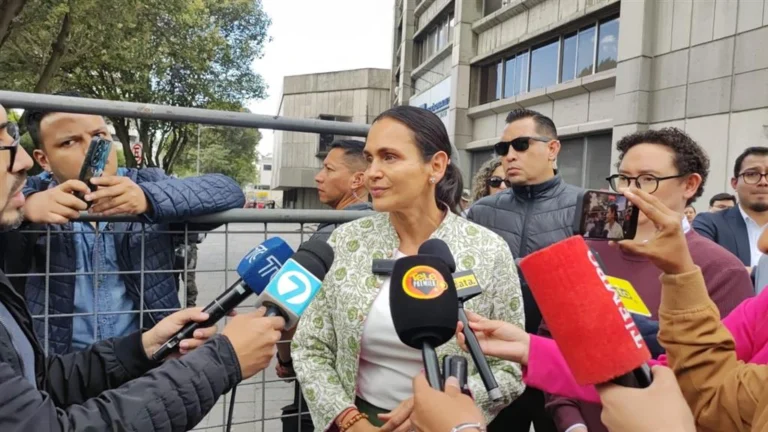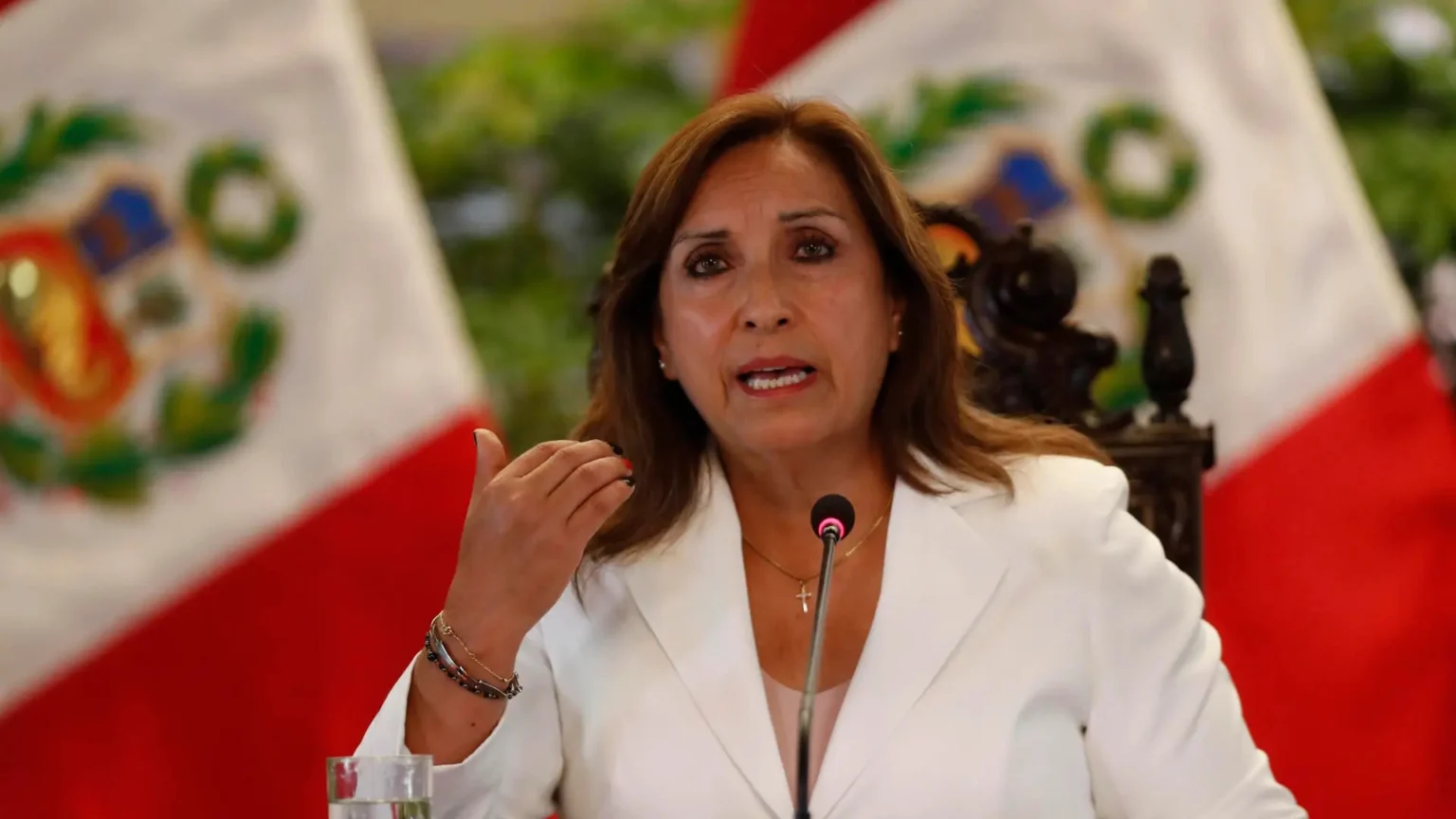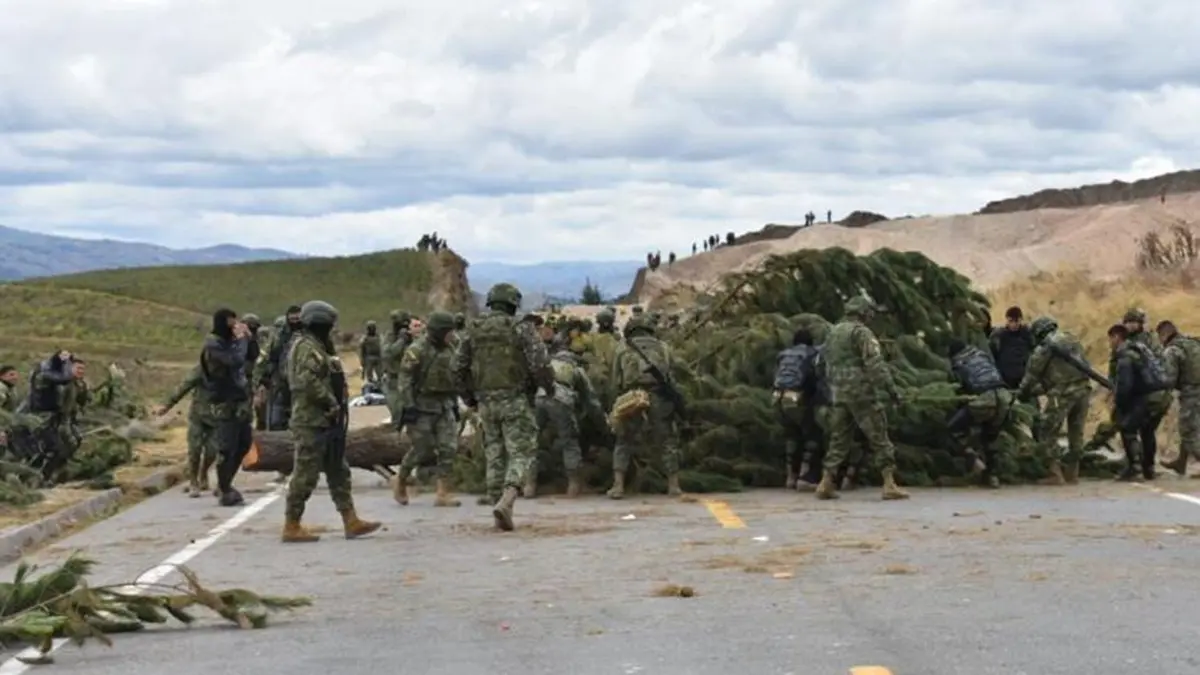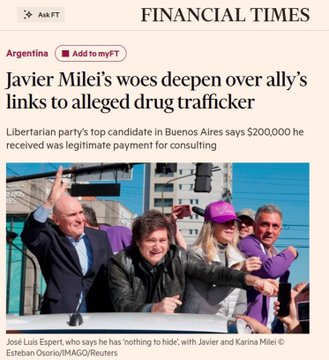Legal scholar Claudia Rocca analyzes the strategy of imperialism in Our America that undermines the democratic foundations of the affected states by compromising their capacity for self-determination and promoting subordination to external agendas.
24 September 2025
Oswaldo Guayasamín (Ecuador), Homenaje al hombre latinoamericano (Homage to the Latin American Man), 1954.
Greetings from the Nuestra América office of the Tricontinental Institute for Social Research,
In recent months, the judiciary has played a leading role in our region: from the lawfare orchestrated against the former president of Argentina to the historic convictions of former presidents of the regional far right, such as Álvaro Uribe Vélez in Colombia and Jair Bolsonaro in Brazil. However, it is worth clarifying that, contrary to what the hegemonic press tries to portray about the similarity between cases of lawfare and those of justice for proven crimes, the two are very different in nature. To better understand lawfare as a strategy of imperialism in Nuestra América , we asked Claudia Rocca of the American Association of Jurists to contribute to this debate:
Lawfare is a political war waged through the courts and the media, which responds to economic, political, and geopolitical interests. It involves judges, prosecutors, media corporations, journalists and opinion leaders, police, embassy officials, and intelligence agents, both local and foreign.
It is characterized by the abuse of preventive detention, plea bargains, and verdicts constructed without respect for due process, through harassment and demoralization via the media. It includes raids on political headquarters and the homes of activists, persecution and threats to family members, forcing situations of exile and political refuge, manipulation, and the spread of fear among those involved in certain political processes.
In recent years, these tactics have been used against dozens of political leaders and/or former government officials in Argentina, Ecuador, Chile, Brazil, Bolivia, Peru, and El Salvador, linked to governments, programs, or projects that question neoliberal orthodoxy to a greater or lesser extent.
This war operates “from above,” through a judicial apparatus that places itself above the legislative and executive branches, expanding the room for maneuver and power for judges, who become involved in political operations, triggering a loss of checks and balances between powers, allowing for a growing “juristocracy,” and in many cases normalizing the double standard of the law. This historical process of repositioning the judiciary above the other branches of government is characteristic of neoconstitutionalism, the predominant legal order in much of Europe and Latin America in recent decades.
The elevation of the judicial apparatus and selectivity in court cases is linked to the leading role played by the media, which works to criminalize political sectors or leaders. Added to this are the voices of “specialists,” many from US “think tanks,” who are attributed a supposed “force of truth” in the mainstream and social media.
The role played by US government agencies such as USAID and others, as well as US private sector interests, is striking: both are involved in judicial processes as well as in the outcomes and events that follow, demonstrating the instrumentalization of the judicial-media apparatus in favor of foreign economic, political, and geopolitical objectives, which share interests and business with privileged local minorities.
But this mechanism is not limited to the internal spheres of countries. For those nations in which the new Western economic power has not managed to undermine national and sovereign political processes, the same recipes are applied using the international system of currency flows, tariffs and trade routes, money laundering prevention systems, immigration control systems, with sanctions and unilateral coercive measures, with charges and accusations, based solely on decisions made by administrative offices and, therefore, are merely political decisions of the US administration.
Lucy Tejada (Colombia), Atados (Tied), 1977.
Several military publications consider lawfare to be one of the components of new “unconventional” wars, such as hybrid warfare. This type of warfare can be carried out by state or non-state actors, who use all the modalities of this type of warfare, including conventional military capabilities, unconventional tactics and combat units, or other terrorist actions, planning chaos through acts of violence, cyberwarfare, financial warfare, or media warfare.
It is enough to invoke the “illegality” of the laws/norms of other states that do not adhere to Western standards for them to be classified as violent (“unusual and extraordinary threat”), thus seeking to legitimize attacks that today take on multiple dimensions.
Although, as we have said, lawfare is a tool used by the state, the government, or privileged minorities at the local level, it is also used at the transnational level, implemented from the Global North.
For the nations that submit to it, this is the core of colonial relations and dependence exacerbated by the expansion of capitalism. Within the framework of this unequal relationship, the US and its allies reorganize the scenario in favor of the interests of a transnational power network, creating a kind of “legitimate legal order”; and they define the scope of their jurisdiction, with disregard to the sovereignty of weaker states that do not have the capacity to impose their law by force or to exercise resistance.
Jurisdiction is not simply a rule, but determines which rules will be applied, where, how, and by whom. Therein lies the power of subjugation of the Western power center over our Latin American countries, conveyed through lawfare.
The installation of this “juristocracy” has resulted in the judicialization of high politics and democracy, because by delegitimizing and neutralizing political leaders who are inconvenient for certain economic and geopolitical interests, they have not only affected the individuals directly involved, but also undermined the democratic foundations of the affected states, compromising their capacity for self-determination and promoting subordination to external agendas.
Tricontinental Institute, Hybrid Wars, 2020.
The Argentinian Case
The judicial persecution of political and social leaders in Argentina has developed since the end of Cristina Fernández de Kirchner’s last term in office, when figures who paraded through the media began to take center stage, denouncing the alleged corruption of Kirchnerist officials, without any probative arguments, but with great spectacle and impact provided by the mass media. The attacks were particularly focused on the President, and even went so far as to suggest that she was the mastermind behind the death of prosecutor Nisman, despite the fact that all the evidence gathered in the investigation pointed to suicide.
The federal criminal court, together with other senior officials in the judiciary, became the main opposition party. This process was decisive for the victory of Mauricio Macri, whose administration plunged the country into a process of deindustrialization, concentration of wealth through financial speculation, surrender of strategic resources, and weakening of the state’s capacity, while multiplying the cases that criminalized Kirchnerism in particular and social leaders of the popular camp in general. Milagro Sala is the most paradigmatic example. In the last part of his term, Macri incurred in formidable debt in record time. The nearly $50 billion granted by the IMF in a completely irregular manner is part of the amount that fled the country afterwards.
As a result of the obvious unviability of this government program and the social and economic deterioration it caused, Peronism won the presidential elections in 2019. But clearly, it did not gain power. Lawfare did not yield an inch.
One of the emblematic cases is undoubtedly the so-called “Vialidad” case, in which Cristina Fernández de Kirchner was sentenced to six years in prison for the crime of fraudulent administration. In the context of this trial, the guarantees of defense in court, emanating from Article 380 of the National Criminal Procedure Code, based on Article 18 of the National Constitution and reinforced by the treaties that make up International Human Rights Law, have been violated; the set of rules on judicial conduct known as the Bangalore Principles (adopted by the United Nations Economic and Social Council in its Resolution E/CN.4/2003/65/Annex of November 2002, formally approved on January 10, 2003) have been violated, given the public and notorious lack of impartiality of the judge and his evident links to the prosecution. The judicial arbitrariness manifested in the proceedings against the Vice President shows the same patterns of persecution as in the political proscriptions of other Latin American leaders, and this is clearly evident from a ruling that is in no way related to the evidence produced in the case file, where no evidence has been included to prove the conduct attributed to the former President.
After confirmation by the Court of Cassation—which did not address any of the above arguments—in just two months, the Supreme Court of Justice of Argentina upheld the conviction, while other cases await years or even decades. With the now customary advance and accurate announcement by the media, the unconstitutional ruling achieved its purpose from the outset: the proscription of Cristina.
Carlos Alonso (Argentina), Carne de primera (Prime Meat), 1972.
We can affirm that lawfare was a central factor in the rise to power of Javier Milei, a sinister figure promoted and supported by three centers of economic power: speculative finance and investment in strategic resources (such as JP Morgan, BlackRock, and others), the groups known as “techno-feudal lords”—masters of the networks—and the media.
Since taking office, Milei has carried out a process of dismantling the state; emptying public policies for development, human rights, inclusion, gender, and diversity, within the framework of a process of economic devastation; the deployment of repressive measures with the expansion of security forces and agencies, aimed at silencing social protest in the face of the dismantling of a state system for the effective protection of economic, social, and cultural rights; and the brutal impoverishment of the population.
There have been massive layoffs, while companies, strategic resources, and other public assets have been privatized. The attempt to suppress labor rights, combined with the persecution of trade unions, social organizations, and popular economy organizations—criminal charges, removal of food and other benefits guaranteed by social programs that were abruptly discontinued—reflect a political project of accumulation in favor of concentrated sectors of the economy and financial speculation. In the context of inflationary pressures, due to the deregulation of essential economic factors such as services, benefits, and prices in general, there was a sharp decline in the purchasing power of wages and an increase in unemployment and poverty.
In 2024, small and medium-sized enterprises recorded a loss of more than 217,000 jobs and the closure of 9,923 companies, according to Industriales Pymes Argentinos (IPA). The sectors most affected were construction and industry, with 69,738 and 25,186 fewer jobs, respectively. In the public sector, between November 2023 and May 2025, more than 180,000 jobs were eliminated. There was an increase in informal work and semi-slavery working conditions.
The loss of purchasing power of incomes, as a result of the change in economic policy implemented by the current government, represented the largest monthly drop in the last 30 years (8.4 percent year-on-year in purchasing power).
There was a greater contraction in consumption in supermarket and self-service sales, as well as in retail stores in various sectors. In 2025, inflation is easing, solely as a result of an unprecedented economic recession and deterioration of all factors. The consequences in human terms are now evident and alarming.
This accelerated process of devastation was accompanied by fascist practices and rhetoric, reflecting contempt for the human condition, a supremacist, patriarchal conception, and the most servile and undignified submission to the interests of the United States and the genocidal Zionist government of Israel, vociferously proclaimed by the Argentine president.
In conclusion, we could attempt at this point to define fascism in the 21st century as a social practice that manifests itself through political movements, driven by the new economic power prevailing in the West, which use hatred and polarization as strategies to undermine liberal democracy, break with the social order, and the rule of law. They thus install authoritarian regimes and nepotism, with economic programs that promote accelerated processes of wealth concentration, benefiting the transnational groups to which they respond and favoring financial speculation. The consequences are the destruction of social organizations, the exclusion of large majorities, economic devastation, and repression as a method of social control.
The Argentine example—like so many others—shows us that submission to the current Western economic power represented by the United States only brings consequences infinitely more tragic than the cost of resisting it. Not only is there no benefit or mercy, but it leaves us without a horizon and without a future. Therefore, yielding or submitting is not an option for a sovereign people.
Greetings to all,
Claudia Rocca
https://thetricontinental.org/argentina ... lonialism/
******
National strike in Ecuador met with heavy repression
The elimination of the diesel subsidy has sparked multiple protests across the country. President Noboa defends the decision and aims to change the country’s entire legal framework.
September 25, 2025 by Peoples Dispatch
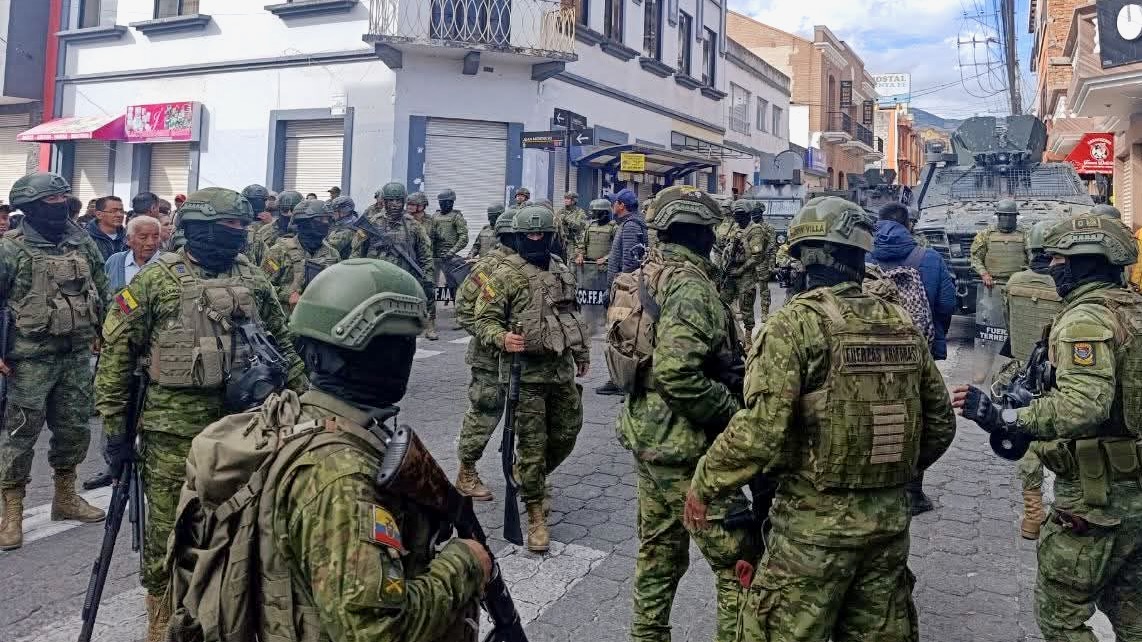
The National Police and the Army have not hesitated to use force to clear the roads and disperse the protesters. Photo: CONAIE
Following the announcement by Ecuador’s right-wing President Daniel Noboa to eliminate the diesel subsidy, several protests have taken place across the country demanding the repeal of the decree. In Ecuador, diesel is used for transportation and agriculture. Before the decree, the cost per gallon was set at USD 1.80; now it costs USD 2.80.
This increase has a direct impact on food production and marketing prices, which is already evident in the markets, as well as on the cost of passenger transport, which could prove very problematic for a country undergoing a prolonged economic and security crisis.
The measure was initially rejected by the transport union, although they quickly reached an agreement with government negotiators. However, the Confederation of Indigenous Nationalities of Ecuador (CONAIE), the country’s most significant social movement, declared that it would initiate indefinite mobilizations starting on September 22.
In 2019 and 2022, CONAIE led massive protests against the governments of Lenin Moreno (2017-2021) and Guillermo Lasso (2021-2023), who attempted to eliminate fuel subsidies. The protests, in which dozens of people died, halted the economic measures requested by the International Monetary Fund. However, it seems to be a non-negotiable point that successive right-wing governments insist on implementing, with the Noboa government (2023-present) being the one that has most significantly advanced the neoliberal economic program.
Mobilizations
“Sisters and brothers, today we begin the National Strike. We are not criminals or terrorists; we are a dignified people who demand respect for life, rights, and territories. The government’s response cannot be repression or persecution, but rather listening to the legitimate demands of the people. We call for unity among all sectors to raise, with firmness and dignity, our collective voice for the future of our families and our country,” said Marlon Santi, president of CONAIE.
On September 22, some of the country’s major roads were closed by protesters, especially in the provinces of Carchi and Pichincha. In Cotopaxi, Chimborazo, and several provinces in the Amazon, road closures and some clashes with law enforcement officers seeking to clear the blocked roads have been reported.
At the start of the demonstrations, the cities of Latacunga and Otavalo woke up militarized, as the government decided to temporarily move the presidency and vice presidency there, respectively, in hopes of containing two of the most active sites of Indigenous mobilization.
However, the province of Imbabura, where Otavalo is located, has become one of the most active sites of protest as the days have passed. Thousands of protesters have clashed with the police, who have decided to crack down and imprison several protesters.
The harsh actions of the security forces
Several human rights organizations, such as the Regional Foundation for Human Rights Advisory Services (INREDH), have reported that protesters claim that abuses and harassment have been committed by the security forces. These allegations were echoed by the Waorani Nationality of Ecuador (NAWE), which represents an Indigenous Amazonian population: “[We were] repressed by the public forces.”
This seems to be the tone of the protests across the country. The National Police and the Army have not hesitated to use force to clear the roads and disperse the protesters. According to the minister of government, Zaira Rovira, so far, after three days of protests, 59 people have been arrested.
For his part, Security Minister John Reimberg claimed that the strategy of the Indigenous leaders is for one of the protesters to be killed: “What these pseudo-Indigenous leaders are looking for is to victimize themselves and for us to use force in such a way that an Indigenous person is injured or killed.” He also pointed out that among the protesters are members of the Tren de Aragua, a Venezuelan criminal organization, which would demonstrate an alleged hidden agenda.
These claims have been strongly denied by Indigenous leaders, who assert that such statements are a ploy to delegitimize the struggle of the Ecuadorian people and legitimize increasingly radical repression against protesters. “We are not terrorists! We are peasants, farmers, workers, students, we are a people demanding our rights,” wrote Leonidas Iza, former president of CONAIE and leader of the protests in 2019 and 2022.
Repression was also evident in the country’s capital, Quito, where on September 23, several students and workers took to the streets to protest the Noboa government. Students and professors from the Central University of Ecuador closed Avenida América in rejection of the elimination of subsidies; they later joined a workers’ march that advanced through various parts of the city.
Another group of people demonstrated at night in the north of the capital, where they reported beatings and abuse by the police. In a video that went viral, a police officer is seen spraying pepper spray into the mouth of a protester who was shouting his name as he was being taken away by the police. The same happened with a video showing law enforcement officers firing at the occupants of a van fleeing repression in Saquisilí, Cotopaxi province.
The context of the protests
The demonstrations are in addition to several protests by students, workers, and teachers that have taken place in recent months in the country against the neoliberal policies of the Noboa administration.
However, the executive branch has not slowed down its plan but rather accelerated it. On September 23, the president explained this very clearly: “We will not back down, as we did in 2019, as we did in 2022. We must show firmness and compassion to those who truly need it. Before they try to make me back down, I would rather die. I am staying here and I will be fighting every day for each and every one of you,” he said at a rally before his supporters.
But the truth is that Noboa, who is following the agreements signed with the IMF to the letter, has a more ambitious plan than simply eliminating the diesel subsidy. In recent weeks, Noboa identified his new enemy as the Constitutional Court (CC), which rejected several articles of the recent laws passed by a Congress controlled by the ruling party.
This strategy sought to preempt one of the changes most desired by Ecuador’s economic elites (to which the president belongs, as the son of the richest man in the country): to eliminate the 2008 constitution, which undoubtedly has anti-neoliberal roots, as it prohibits the privatization of public services and defends the rights of workers and nature, among other provisions labeled by constitutional lawyers as “guarantees”.
Noboa’s plan seems to have worked. After two demonstrations and a media campaign against the judges, the CC agreed to a referendum asking Ecuadorians:
If they want to call a constituent assembly
If they approve of foreign military bases
If they want to end state funding for political parties
These are the three main pillars of the plan to restructure Ecuadorian politics and the economy.
In this sense, the current protests are not limited to the elimination of the diesel subsidy – a fundamental step in the government’s economic program – but also express a series of social, economic, political, and security issues (Ecuador is now the most violent country in Latin America) for which the protesters blame the Noboa administration. Many see the protests as one of the last chances to curb the neoliberal intentions of the executive branch, which does not seem to have any intention of slowing down.
Meanwhile, the government is betting on the proposed referendum to carry out its governing plan. A plan which, despite electoral promises, does not seem to be curbing unemployment, murders, and the widespread social crisis affecting the country. In the coming days, we will see whether the protests manage to gain momentum, as they did in 2019 and 2022, consequently undermining the popularity of the presidency, or whether, on the contrary, the government manages to get its way, eliminate the subsidy, and emerge stronger to face a possible referendum vote. This is undoubtedly its toughest obstacle so far.
https://peoplesdispatch.org/2025/09/25/ ... epression/
